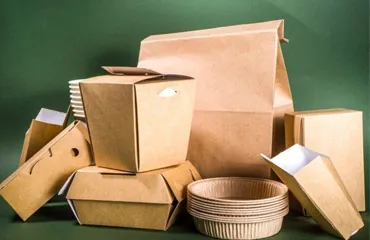Strategic Partner

Authorised By - CPCB
Compostable Products
The Difference Between Degradable, Biodegradable and Compostable
There are three terms that get thrown around a lot when people talk about plastics, so it is worth spending a moment to clear up how they are related to one another, and how they are different.
Degradable Plastic
The word "degradable" just means that something breaks down. Technically, all plastic is degradable plastic. You can break it with a hammer or grind it into a fine powder — this all counts as breaking down the plastic. Some plastics have additives that make them break down faster under conditions like sunlight (photodegradable) or oxidation (oxo-degradable).
While these plastics may appear to disappear, they only turn into tiny pieces (microplastics). These remain in the environment for years and don’t return to the earth in a meaningful way.
Biodegradable Plastic
"Biodegradable" means degradable, but with an extra condition: it can be broken down by microorganisms. This allows the carbon in the plastic to become part of natural organic molecules and the carbon cycle.
Only certain bioplastics will biodegrade within a reasonable time. Petroleum-based plastics that simply break into small pieces usually cannot be digested by microorganisms. Some renewable plastics are also processed in ways that make them non-biodegradable.
Compostable Plastic
"Compostable" plastics are biodegradable, but they also meet specific standards: they must biodegrade within a certain timeframe under composting conditions. This ensures they truly return to the earth in a safe, natural way.
All compostable plastics are biodegradable, and all biodegradable plastics are degradable — but not all degradable plastics are biodegradable or compostable. Be cautious of products that only claim to be “degradable.”

